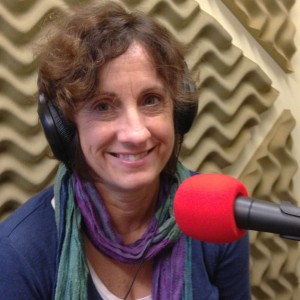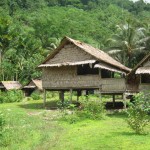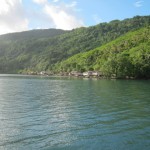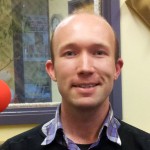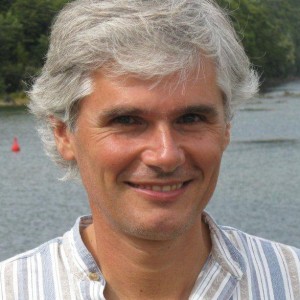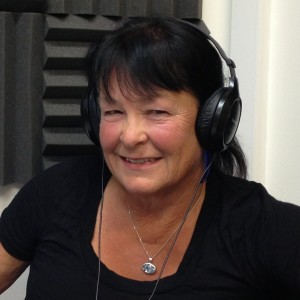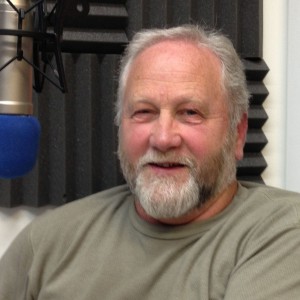Professor Lesley Hughes is an ecologist in the Department of Biological Sciences, Macquarie University who researches the impacts of climate change on species and ecosystems. She is a lead author on the IPCC fourth and fifth assessment reports, a member of the Australian Government’s Land Sector Carbon & Biodiversity Board and commissioner on the federal Climate Commission.
Tag: Anton Angelo
Sustainability of Are are music
Sean Linton talks us through his PhD research “The Music of ‘Are’are: acoustemology, environmental influences and sustainability”.
Images from Sean of the Manawai harbour and the weekly/fortnightly supply boat Dragon:
Sean’s ‘Are’are recordings: SoundCloud
Smart Cornwall
Dr David Hawkins is Associate Dean (research & innovation), School of Art and Design at University College Falmouth. David talks to Sustainable Lens about the Smart Cornwall initiative.
Megan Woods is the Member for Wigram. She is the Labour Party spokesperson for Youth Affairs, Spokesperson for Christchurch Transport Issues, and Associate Spokesperson for Science & Innovation. Megan talks with Sustainable Lens about how the reinvention of progressive politics is based upon historic precedents for active government. She describes economy and the environment as a bundled loop you can’t pick apart. We talk about industrial farming and working smarter to combine the primary and IT sectors.
(Note: interview recorded on 3rd December 2012).
Saving lakes and rivers
Limnologist Marc Schallenberg knows lakes. And rivers. He also knows the terrible state they are in. And why. And what we have to do about it. He tells us all these things on a fascinating session with Sustainable Lens.
Shane’s number of the week: 1,000,000,000,000. That is over $1 trillion in subsidies for areas ranging from fisheries to fertilisers and fossil fuels, wrote Achim Steiner, executive director of UNEP in the OECD’s Development Cooperation Report: Lessons in linking sustainability and development
Much of this money is actually fuelling environmental decay, such as climate change; engendering collapse of fish stocks and damage to coastal systems and aggravating social and economic challenges.
The report goes on to say that
Removing these distorting, environmentally harmful and socially under-performing subsidies would completely change the incentive structure, promoting sustainable consumption and production and freeing up to 1-2% of global GDP every year.â€
The report published this week by the OECD says that green growth is the only way forward for rich and poor countries alike to achieve sustainable development because of tremendous economic and livelihood losses from severe climate change and the depletion of natural resources and that climate change is hitting the world’s poorest people the hardest.
What is striking though is the report is using language like “collosal†and “collision ‘and ‘alarming’. Angel Gurria, the OECD secretary General uses surprisingly strong words:
We are on a collision course with nature
“It is time for a radical change. If we fail to transform our policies and behaviour now, the picture is more than grim, Our current demographic and economic trends, if left unchecked, will have alarming effects in four key areas of global concern – climate change, biodiversity, water and health. The costs and consequences of inaction would be colossal, both in economic and human terms.”
What is so frustrating – and when I say that I mean tear your hair out this is totally insane frustration – is that more and more organisations and groups are saying that we are on a path to utter disaster and yet our leaders do nothing…
So that is my number $1 trillion pa in subsidies to things that are actively destroying our world.
When Sustainable Lens first talked with David Clark he was an aspiring politician. Now just over a year into his first term, the Labour MP for Dunedin North comes back to tell of his “interesting year”. We talk social justice, environment, debating, and values. We ask him for the best, the worst and the most difficult of 2012.
Life at the intersection of science and policy.
During her career in management and governance, Dr Maggie Lawton has help lead New Zealand’s organisations down the road of a sustainable future. She describes her work as “Strategic Sustainable Design”. Not considering herself an activist but as a change agent, Maggie sees her role as “staying inside the room” – helping guide policy and decisions. Amongst other roles, Maggie now leads Otago Polytechnics Centre for Research Expertise in Sustainable Practice.
Shane’s number of the week: 9. Nine of the ten hottest years on record have been since 2001. 2012 is on track to being the ninth hottest year on record.
Sam’s joined-up-thinking: This week a new report into consumer attitudes was released. The Regeneration Consumer Study is an in-depth online survey of consumer attitudes, motivations and behaviours relating to sustainable consumption among 6,224 respondents across six major international markets.
Storyteller challenging ideas
Allan Baddock describes himself as a storyteller. He tells us the story of identifying audiences and tailoring messages in film and print since the 1970s. Sometimes this means bring unpalatable ideas into mainstream thinking. Our discussion ranges from Lenin to milk, from iconic landscapes to marketing, and from stolen revolutions to reality TV.
Shane’s number of the week: 21 is the number of opportunities for Green Growth identified in the recent Pure Advantage report.
Sam’s joined-up-thinking: Today the Otago Energy Research Centre held its annual symposium. Sam went along and cam back excited by some of the research. We’ll be hearing more from these people over the next few weeks.
